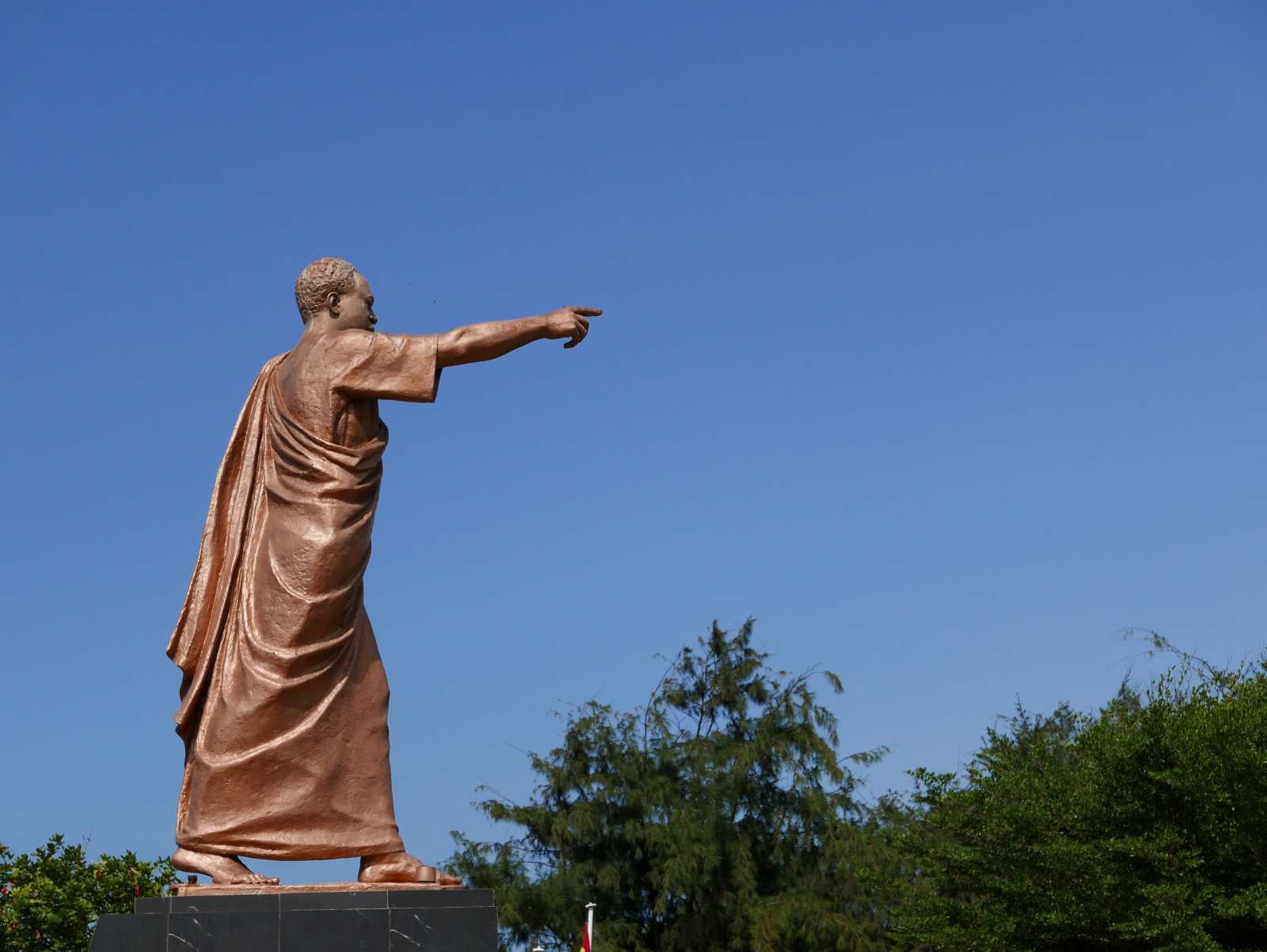Human rights
A worrisome trend reversal

After the end of the Cold War, the World Conference on Human Rights was held in Vienna in 1993. It delivered a new and powerful acknowledgement of the fact that all human rights are interrelated, indivisible and universally applicable (see box, p. 20). The canon of human rights has since become more specific and was even expanded to include new topics (such as racism, torture, migrant workers and forced disappearance) and groups (such as women, children and the disabled). In many instances, relevant principles have trickled down into national legislation, new constitutions and jurisprudence.
The 1990s were a decade of change. Democracy seemed to be taking hold worldwide. The UN organised a series of world conferences, which fed the hope that the key challenges of the future would be solved in multilateral settings. Examples include the Earth Summit in Rio in 1992, the World Conference on Women in Beijing in 1995, the World Summit for Social Development in Copenhagen in 1995 and the World Food Summit in Rome in 1996.
These conferences did not only establish guidelines for national and international policymaking, they also drove the growth of a global civil society. That trend too shaped many countries. The number of civil-society organisations rose quickly. Simultaneously, important framework agreements on economic globalisation were created. The World Trade Organisation (WTO) and the North American Free Trade Agreement (NAFTA) both emerged in 1994 and the European Single Market came into being in 1992.
Today, the basic mood is very different. The number of countries in which authoritarian tendencies can be observed is increasing. New laws are restricting people’s freedoms in many places. A new, authoritarian nationalism is casting doubt on multilateral cooperation.
Of course, the question of whether we are experiencing a fundamental trend reversal is up for debate. Development progress of the type that Hans Rosling and Steven Pinker impressively document in their books should not be overlooked (see e-Paper 2018/9, p. 39 and 2018/7, p. 16). It was good that both the Paris Climate Agreement and the Sustainable Development Goals (SDGs) were adopted in 2015. Currently, 56.5 % of all people live in countries that are categorised as democratic. Elections are widely recognised as the basis for legitimate governance, although voting is now being manipulated in many countries. Political scientists like to point out that the talk of democracy being in crisis is as old as democracy itself.
Nevertheless, the observation is fully justified that a trend reversal is taking place. It makes sense to use this term in order to assess current events. Resistance to the present form of global multilateralism is growing, acceptance of democratic institutions is declining, and civil-society organisations’ scope for action is becoming ever more limited. President Donald Trump is living proof of the fact that even in the U.S. respect for an independent judiciary and a free press can no longer be taken for granted.
But democracy and human rights remain essential prerequisites for rising to global challenges, as the SDG agenda has clearly spelled out. If we want to resist the authoritarian-populist trend, we have to understand why the optimism of the 1990s has turned to pessimism in so many cases.
Six problematic developments
Six, to some-extent interrelated trends have changed the atmosphere:
1. Economic globalisation was driven by radical market-orthodoxy and has progressed fast. It has substantially weakened state power. After privatisations, deregulations and the cutting taxes and tariffs, even the governments of rich countries struggle to fund infrastructure and social-protection systems. At the same time, wealth is increasingly concentrated in the hands of the very few, whose financial power allows them to wield enormous political influence. At the same time, democratically elected governments are able to achieve less and less. Many people no longer trust their government to take appropriate action in order to address the current serious challenges. The financial crisis, which began ten years ago with the bankruptcy of the Wall Street investment bank Lehman Brothers, made these issues quite obvious to the general public.
2. The decline in statehood was accompanied by a minimalist understanding of democracy, according to which elections in particular form the core of the democratic model. This stance disregards the fact that free and fair general elections are only effective ways to democratically steer societies if citizens’ rights are preserved, the separation of powers is upheld and social justice is pursued. We are now seeing that minimalist democracies – for instance in Africa or Eastern Europe – tend to be weak democracies. In some cases, elections can actually make conflicts worse, for instance if party-political divides reflect ethnic ones.
3. In contrast to the wave of opening up in the 1990s, many governments are now becoming more repressive. They ward off demands for accountability, transparency and an end to corruption. Particularly in places, where economic power is highly concentrated among the few, governments find such demands unpleasant. In recent years new laws have been passed to restrict the opportunities and scope of political action of civil society organisations in around 70 countries, according to CIVICUS, the international citizens’ rights organisation. The trend towards limiting civic space and increasing control is evident even in supposedly stable democracies, as new laws to control civil society show in countries like India or Israel.
4. Doubt in the capabilities of the democratic nation state is growing in many contexts. It is not always clear if this uncertainty is based on actual problems, or rather on the fear of potential problems. Links between the fear of downward mobility and growing populism is empirically evident. In rich industrialised countries, average income have stagnated and purchasing power has often dropped. In the eyes of Oliver Nachtwey, a sociologist, even Germany, which has a comparatively strong economy, has become a ”society of downward mobility” (see D+C/E+Z e-Paper 2017/02, page 26 or print version 2017/03-04, page 42). However, anti-democratic rhetoric does not necessarily resonate with the poor or the especially disadvantaged. More typically, fears of personal decline are manipulated to agitate against marginalised groups. Any government action that benefits people other than oneself is opposed, and demands for the preferential treatment of one’s own group are becoming louder. Such sentiments can be, and often are, ethnically or religiously charged.
5. It is clear that neither national nor multilateral policies are responding appropriately to environmental dangers so far. If the current trends continue, the Earth will warm by more than three degrees – even though the Paris agreement sets a limit of two degrees at most and, if possible, as little as 1.5 degrees. To achieve that, a global economic transformation would be necessary, but there is no sign of global consensus on the matter. On the contrary, populists are receiving support in part because they deny the problem and reject the obvious implications. Instead of accepting that life styles must change, they promise unlimited growth. Often they are financially supported by special interests that would be hurt by ecological transformation – as the example of Trump, whose campaign benefitted inter alia from oil and coal money, shows.
6. After the attacks on 11 September 2001, the west, in particular the USA, contributed to calling into questions its own fundamental values. In reaction to organised terrorism, war was waged in Iraq, and lies served to legitimise the invasion. The human rights violations committed by western actors were particularly damaging. Torture in military prisons sent a disastrous signal to other governments that are known to abuse human rights. It was naïve, moreover, to hope that primarily elections would be sufficient for long-term regime change. There was a lack of detailed and substantive discussions on how to build stable institutions in countries like Afghanistan, Iraq and Libya. As argued above, minimalist democratisation does not lead to real democracy.
The change in attitudes described here happened remarkably fast. We are at risk of entering an era of nationalism, majoritarian tyranny, repression of anyone who is ”different”, as well as of old and new forms of discrimination. If that happens, international development successes will be undone, and global problems will only intensify. The fight for democracy and human rights is as essential as ever, forming the core of any effort to achieve the transformation we need. Civil-society actors have to wage this fight at the national and international level. It goes without saying that the government agencies of democratic countries have to do their part too.
However, it is also clear that democratic governments must offer solutions to pressing problems ranging from social welfare to environmental protection. Experience has shown that free markets and minimalist democracy alone are not enough.
Michael Windfuhr is the deputy director of the German Institute for Human Rights.
info@institut-fuer-menschenrechte.de












